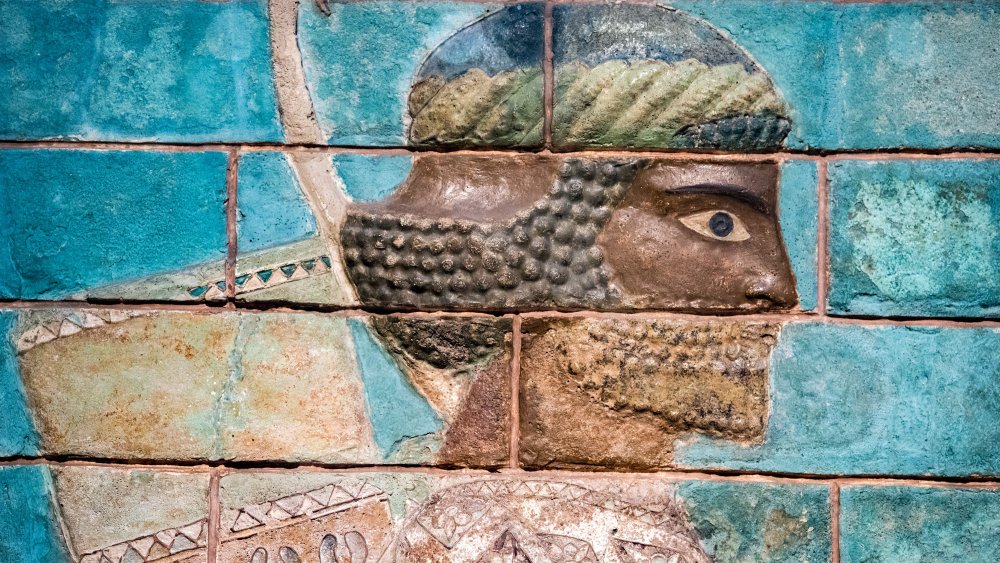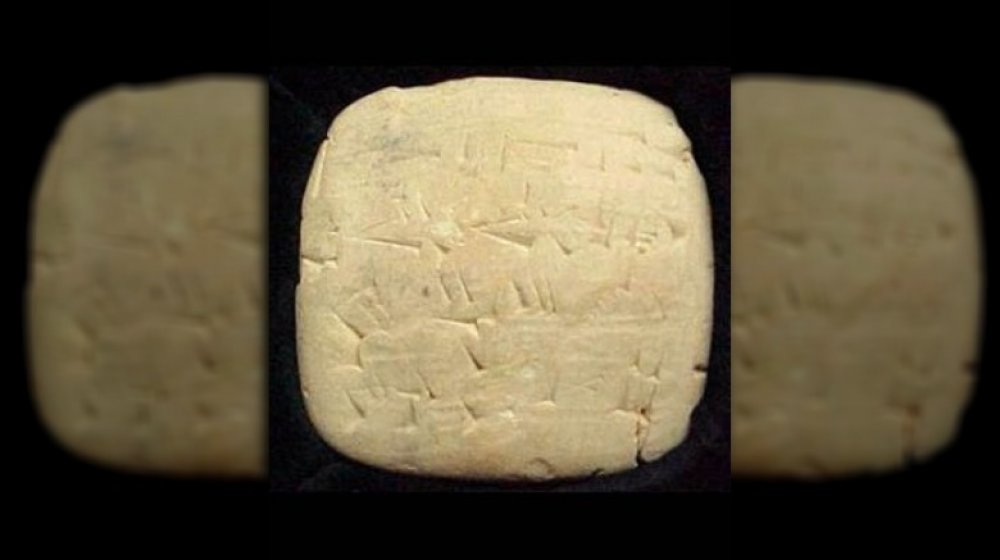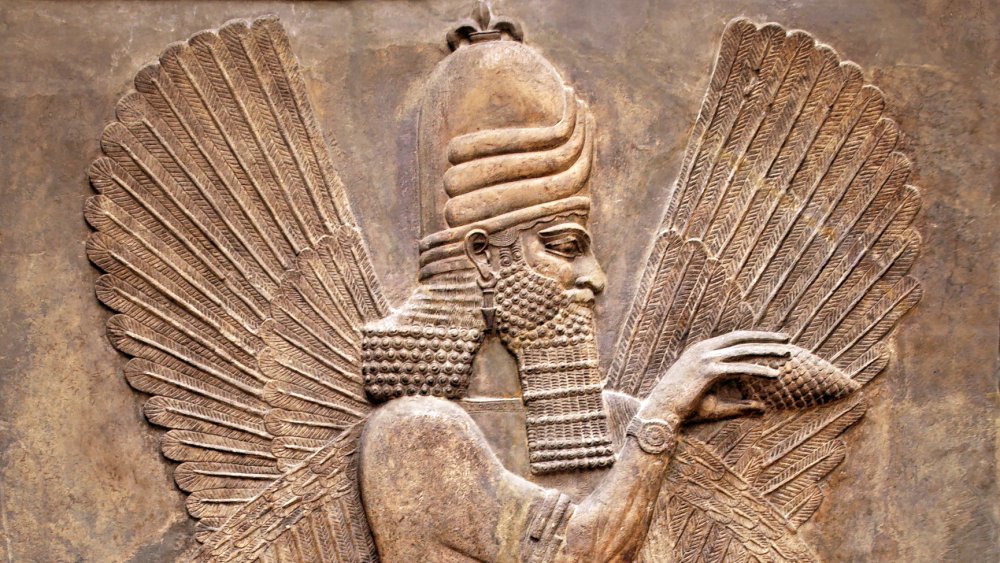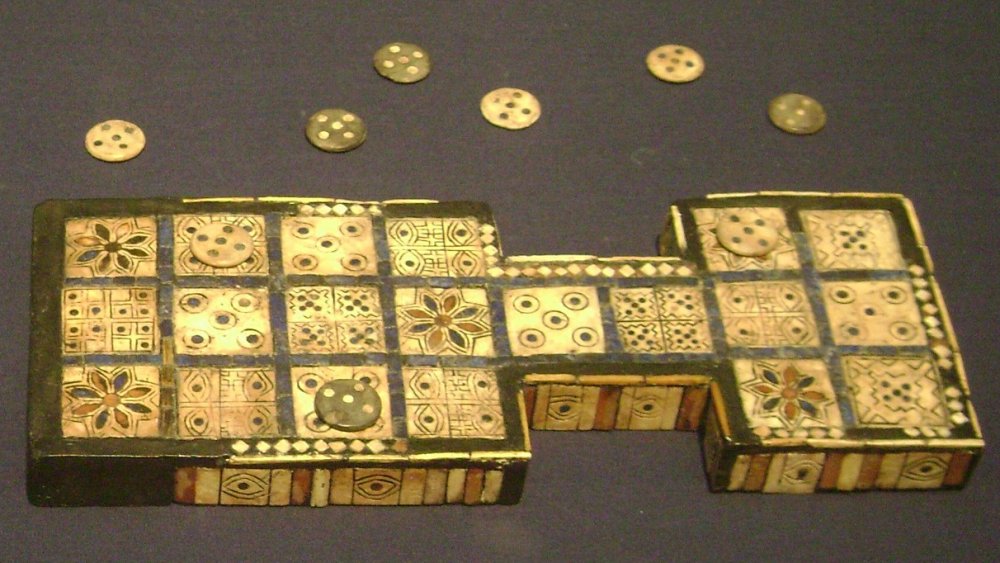Things The Ancient Mesopotamians Couldn't Live Without
It is probably no coincidence that Mesopotamia is widely acknowledged by historians as both the cradle of human civilization and home to the first documented joke about the awkwardness of accidental flatulence. Our knowledge of what life was like in Mesopotamia is remarkably nuanced.
We know Mesopotamians had an endearing habit of worshiping a pantheon of emotionally volatile yet oddly helpful dragons. We have a fairly clear picture that they were enlightened by ancient world standards — getting an A plus for their attention to detail in writing stuff down, and a solid B minus with an Acknowledgment of Participation medal for their openness to the idea — at least in principle — that women are people too.
But that's just the big stuff. We also have an intricately detailed — and in some ways far more interesting — picture of what day-to-day life was like for your everyday Mesopotamian just trying to get by and make ancient world ends meet.
And much of it is ... oddly familiar.
Beer...
Ancient History Encyclopedia credits the Sumerians, a people from Southern Mesopotamia, as being among the first humans to invent beer. So enamored were Sumerians of their frothy libation that they built a solid chunk of their religious belief around the golden elixir.
Ninkasi was the daughter of Inanna, goddess of procreation — an equally popular deity, though probably for quite different reasons. Every day, Ninkasi would rise with the sun to prepare a new draught for humankind's delight. A hymn to Ninkasi was inscribed on clay tablets somewhere around 1800 BCE, according to Beer Advocate — because who else would you turn to when you need the scoop on ancient world beer deities? "Ninkasi, you are the one who waters the malt set on the ground. You are the one who soaks the malt in a jar. The waves rise, the waves fall." In other news, Mesopotamians aren't well known for their poetry.
On a more mundane note, the earliest known purchase receipt relates to a beer purchase. The 2050 BCE tablet records a transaction between two Mesopotamians, Ur-Amma and his brewer, Alulu. The receipt is for a smidge over one gallon of "best" quality liquid gold. To the great puzzlement of historians, the document is mysteriously devoid of 20 percent off coupons.
Bling...
While slaves and poor folk wore plain and unadorned clothing, the well-heeled of Mesopotamia set themselves apart from the rabble with extravagant jewelry, cosmetics, and perfume, according to Fashion Encyclopedia. Women and men alike set their lips a-sparke with a fine powder of gum and semi-precious stones, and archaeologists have discovered seashells in tombs filled with desiccated face pigments in bright yellows and reds, as well as enough startling dark blues and greens to rival an '80s family sitcom.
Perfume making was a highly regarded profession, and a reputation for crafting quality scents could instantly elevate a working-class citizen to nobility status. Talented perfume makers stood a chance of finding the favor of a wealthy patron or even royalty, according to Ancient World Encyclopedia. Such a boon could transform an impoverished family's humble existence for generations.
From precious-stone lipstick to being buried with one's mascara, to family fortunes made and lost on the strength of a new and improved body wash — it's fair to say the Mesopotamians took their self en-bling-ment seriously.
and board games!
Early 20th Century excavations of the Mesopotamian Royal Ceremony unearthed some intriguing artifacts, according to one article in the Clever Games blog. What later became known as the Royal Game of Ur is made up of all the gaming accouterment a gamer would instantly recognize today: a cute game board with colorful talismanic symbols, curious pyramidal dice, and an assortment of small tokens your cat would happily ingest in a heartbeat. The game is credited as being among several precursors to checkers, last-resort of bored family vacationers for, oh, going on five millennia now.
Illustrations of daily life regularly depict families sitting down to a board game, Ancient History Encyclopedia reports. It was likely one of many available evening distractions, alongside music and story-telling, but historians posit that the game also acted as a subtle metaphor for life, affording players a new and refreshing way to welcome the inevitability of their eventual demise... so it may also have been a bit like Monopoly.
From beer to bling to board games, once you get past the dragon worship and criminal poetry, the things Mesopotamians couldn't do without run strikingly parallel to the fixations that keep many of us sane today.



